151 Dr. Matt Keener, Exploring Telemedicine, Starting a Health Network, and Improving Brain Health10/31/2016
Never miss one of our best episodes by subscribing to the newsletter.
Dr. Keener is a board-certified psychiatrist passionate about applying neuroscience in non-traditional settings to help families and adolescents. He set out to work with "kids and brains" 20 years ago and never looked back. Matt completed his medical training and residency in Child & Adolescent Psychiatry at the University of Pittsburgh, Western Psychiatric Institute and Clinic, where he served as Chief Resident of Research. He subsequently undertook a postdoctoral research fellowship in Pediatric Neuroimaging Research under an NIH grant fellowship, studying brain systems/circuits that form our sense of self in bipolar disorder, depression. Fascinated by big waves however–and believing that applying neuroscience outside traditional routes could have a broader impact for good–in 2012, he jumped into the wave of healthcare innovation. He co-founded Emodt, a company quantifying emotion through language. LIke 99% (yes, that's the actual number) of digital health startups, Emodt didn't make it as a stand-alone business, but the team did have a win in helping one of the world's largest pharmaceutical firms create their first non-drug digital health tool to be launched in 2016, presently in pilot testing. In 2015, wishing to put all this experience into serving adolescents and their supporters, Dr. Keener began assembling Blackbird Health as a way of delivering a supportive health framework for those in greatest need. Book Recommendation Ready Player One by Ernest Cline Matt’s Challenge; Notice and pay attention to friends who are letting you know that they are struggling http://www.goingdeepwithaaron.com/podcast Connect with Matt Website If you liked this interview, check out episode 140 with Richard Citrin where we discuss resilience and how to deal with stress.
10 Comments
A letter to a friend to inspire and cultivate creativity. Thank you for your attention.
@AaronWatson59 on Twitter and Instagram Never miss one of our best episodes by subscribing to the newsletter.
Never miss one of our best episodes by subscribing to the newsletter.
Ryan Stewman is a salesman. Ryan has not had a salaried job his entire life. By mastering the art of being a super effective communicator, Ryan has closed more transactions than he has time to add up. With his no BS approach to making things happen, Ryan has been able to help high income, and high net worth performers make adjustments in their businesses that have led to windfalls of profits for them. Ryan’s background is in the mortgage industry. He was a loan officer in Dallas, Texas for almost 10 years. During his time as a Loan Officer Ryan closed 1000s of loans for people across the country. Ryan has been the top producing salesman at every sales job he’s had. He was born and raised in Dallas, Tx and is probably the proudest Texan you will ever meet. Ryan’s Challenge; Take the 10 Day Hustle. http://www.goingdeepwithaaron.com/podcast Connect with Ryan Website clyxo.com/closer If you liked this interview, check out episode 108 with Oren Klaff where we discuss what most salespeople get wrong and professional trash talk. Watson: Hey everyone. Welcome to another episode of going deep with Aaron Watson. I was really excited to get today's guest, on Ryan Stewman is a sales master. In some arenas, you see someone who has gotten a lot of sales in one area and does not necessarily translate, but he's run the game. He's sold books, he's sold mortgages, he's sold digital products along with many others and is here to give us some advice. Both on how to be a more efficient sales person and how to operate in the digital world that doesn't come across as slimy. Historically, there is the slimier association with some salespeople and Ryan thinks it's really important that you go about avoiding that. He also gets very real about his background and some of his obstacles that he had to overcome along the way, it wasn't all dandelions and rose petals. And it's a good conversation it's quick, and I think you'll enjoy it. So here's my conversation with Ryan Stewman. Watson: Alrighty. So Ryan, thank you so much for coming on and going deeper with Aaron Watson, I really appreciate it. Stewman: I'm excited to be here, Aaron. Thanks for having me, man. Watson: Uh, we've got a lot to unpack today and we have a limited amount of time, so I want to start righ off with your book, the hardcore closer, and the kind of message here is that you've had success selling. You're a salesman. You've had success selling though online and in real life. And this book is kind of more geared towards online, stay online sales. So I'm going to ask you about some of the primary differences between, you know, sitting down with someone and making a sale in real life versus the keys to doing that in the online world. Stewman: Well, you know, I think, in one of the things that I talk about so heavily is the fact that things are shifting more online than offline. Anyway, more sales are made online than offline. And a great example of that is Amazon. Amazon's now the number one retailer in America, more stuff sold on Amazon everyday than in Walmart. And so that's like a, that's a key indicator that things are changing. One of the things that you've got to do in order in a huge difference between someone online, offline. But one of the things you've got to do online is be proactive with your objection handling skills, right? So you have to put your self inside the head of your prospect and think what objections and what issues would they have with what I'm selling here. And you have to handle that upfront. Whereas when you're belly to belly, you can wait for them to give you the objections before you address it. But when you're writing sales copy or when you're putting something for sale online, whether it be a video sales letter or actual print, you've got to handle all the objections. Even some that they didn't even realize they have, you have to plant those seeds in their head and show them that there's no doubt on that as well, because one thing offline is you can look at somebody’s eyes and you can tell if they're confident and if they're trustworthy, that's like one of our six senses that we have as human beings, but you can't really do that online. So you have to be really good at objection handling through print or video. Watson: Absolutely. That's such a good point and very clear through that answer, but just in general, looking at your track record, that you have a lot of experience in these different situations. You've given them a lot of thought, but to help the readers kind of catch up with where you are now, I'd love to set a little bit of context for people. And so I know that you've been selling for very long time, start at a young age. Can you walk people through some of your past experiences in different sales roles? I know that you've never really held a job that didn't involve getting a commission in some way or another. Can you just tell people a little bit about where you've come from and how you've gained all this knowledge and expertise? Stewman: Yeah, absolutely. I love telling this story because I I've never had a job with a salary. I've never taken like a paid vacation or got like a pay Christmas off or any of that stuff. I've always been a sales person ever since I was 13, I worked hourly plus commission selling carwashes. And actually I did that for the most part of my young life talks about 24 and one of the customers there offered me a job selling mortgages. And so I got into the mortgage business. Like, obviously it's a pretty easy choice, like $10 and 50 cents plus commission at the carwash, or I can go in and possibly make a million dollars a year with this house thing, or I don't check this out. What I got to lose? Carwash is still going to be here, right? I got into the mortgage side of things and actually turns out, even though I didn't graduate high school or anything like that, turns out I was pretty good with looking at numbers outside of the box. I probably couldn't add them up myself, but I got pretty good at using the software the way that would make sense to me. So, I got really good at mortgages in a short period of time. Within about a year I was making, you know, I went from making 40 or $50,000 a year, selling carwashes, to you know, a couple of hundred thousand dollars a year in selling mortgages and flipping real estate and everything else. And, I got into some trouble, man. You know, sometimes when you get a little bit of money, you do some stupid stuff and you get in some trouble, and that happened to me. You know, I got in some trouble with the gun, and I lost my ability to obtain my mortgage license. And, so that was when I made the transition from selling mortgages to doing what I do now, which is, you know, selling people on how to make money and sell stuff online and through social media and all that. It was kind of a blessing in disguise because, I mean, I could still be pushing numbers for a living in. It was a cool job, but it wasn't as cool. Now looking back, it wasn't as cool as I thought it was at the time, right? It's a good money, but it's not really a cool job. Just staring at numbers all day. Watson: Yeah. And there is also the aspect in terms of, you talked about maybe one of the harder things about selling online is that you have to kind of pre handle all these objections. But one of the real big advantages is that you can scale in a way that isn't possible in a role where everything is selling one to one. Can you tell me a little bit more about how you came to realize that you could be an asset to people and do this kind of online coaching? Because I think everyone kind of has a unique or interesting path to realizing that they have this type of skill that is really applicable and useful for other people that they may have taken for granted. Like, I'm sure when you first started selling those car washes, you weren't thinking I'm going to teach people how to do this one. Stewman: Yeah, no, I had a revelation in like 2005. I read, think and grow rich for the first time. I was like, one of these days I'm going to coach people. I don't know what the heck that even means, but I'm going to do it, right. And then I just kind of went on about life, but what happened was I went to get a job with one of my real estate friends. Yeah. I didn't think that I was going to teach people online stuff. I thought I was going to, what I used to do in the beginning, here was I would log in. It's like, let's say you hired me. I would log in as you into your Facebook and LinkedIn profiles. And I would post and engage your audience and stuff like that. And then I would just flip you the leads that came from it. I did that for about 70 people. Believe it or not, man. I had a lot of things going on. We ended up having, it was a nightmare. It sounded like a good idea. It was making some decent money and it turned into be a nightmare. But I gained a lot of experience through that. And one of my friends, one day, he's like, instead of doing all this work, man wants you to teach people how to work for themselves. And he gave me the old biblical philosophy, teach a man to fish. Right. And he can fish. He can feed himself forever. If you just give him a fish, then he's gotta be reliant on you. So I thought, all right, well, I'll start teaching people and turns out, I was able to like, the demographic that trusted me and wanted to learn from me weren't the demographic that fit everybody else. Like you've got a lot of guys that are sales trainers, and I don't. I'm not really a sales trainer, but you've got a lot of guys out there that are sales trainers in suits and ties and everything else. And then here I am in a t-shirt with a bunch of tattoos and you know, I have a sketchy background to say the least. I told you guys, I got in trouble for guns and stuff like that. So I didn't fit the normal stereotype. But it allowed people that there was a big void out there. Everybody's like, you know, suit and tie at church on Sunday sales trainer, and there's plenty of those guys out there. There wasn't anybody who was really more of an authentic, really what goes on behind the sales lines. And I feel like first and foremost, I'm a sales guy. So, you know, I came out and started reaching like alpha personality types that wouldn't pay for somebody. Like Zig Ziegler or something like that. They think that that's too old school or beneath them or whatever, and zigs awesome. Like I'm definitely not knocking him, but just using him as an example. And, you know, but they had already been through that years ago, right. They needed some next level stuff and that's kinda where I was able to step in. And then through me, being authentic, and just being who I am. It started to attract the right people. And most of my private clients make, you know, half a million dollars or more a year. A large majority of them, make half a million dollars or more. Each year, several of them make seven figures. In W2 sales jobs, a lot of them. So, you know, I've just been able to reach the personality types that normally wouldn't trust somebody else online, but, you know, I pretty much pour my heart out for the community to see, right. There's like a, what you see is what you get with me. I don't really hide anything. So, I become a pretty trustworthy person because even in downsides and in down times and good times, I just keep it real. And, you know, speaking of which you asked this as well, about the, you know, online selling stuff. And it just dawned on me, you know, a couple of days ago, you know, I was at my wit's end, man. You know, I've been scaling this business for a long time. It was just me, Aaron and I ran this business and I would coach people and sell a few products on the side, do a few speaking gigs. Yeah, I make half a million dollars a year. It's not a bad living. It didn't really stress me out too much. But then I decided I wanted, I was on a mission, man. I wanted to do some something bigger. And so I started writing books and I started making cheaper products in or lower price products I should say. And, you know, putting things out into the marketplace to where I can meet more people, I started getting serious about blogging. I built a sales team up and we've had to hire and fire and publicly shame and stuff a lot of salespeople, right? A lot of people say, oh, I'm a bad ass. Put me in our clothes, anybody. And then they say that, but they didn't mean it. You know? So we we've run into that a lot over here. But if a few days ago, you know, I thought I had a really good team place, and last month we did about half what we normally do. Now, some people would kill to do $200,000 a month. To us, that's not a very good month. But I had about six people in my sales team and half of them left. One of them got offered a six figure salary. One of them had some personal issues. Another one had some family issues and man, you know, it all came at me, at once. I lost half the team, you know, and good people, nothing wrong with them. One of them had to go chase his dreams. I mean, it was just all, it all hit me at a hard time. And I thought, man, I can't let this happen again. And like, this is recent, just, you know, a few days ago, but I had been putting some things in place in case this happened, but I surely didn't expect it all to happen at once. I thought maybe along the way one would drop off here and then we'd hire somebody else. I didn't expect to like wake up one morning, basically, and half the folks would be gone. My solution to that is simple. I'm doing webinars, right? It's so if I can't get my sales team and I can't trust people that I hire a hundred percent to always stick around for the long haul, then I'm treating webinars no different than hotel meetings, right now. I'm just getting people in the front door of the webinar, and then I'm giving my pitch. In my case, it's usually about 1500 people at once. Instead of just getting in front of one or two people belly to belly. So that’s, you know, my story and how it's all led up and I'm actually making the changes that you ask about. Watson: Yeah, it’s really interesting. Another thing that I kind of just thought of, as you were talking about was this skillset of leadership and building a team and how that's different than maybe direct sales skills. Like you could be someone who can get a room and get the sale, or whatever process you have, but organizing a team is really another skillset. I'm curious if there's anything else that you've learned through the process or how you've gone about educating yourself in that area. You mentioned that you, you read, think and grow rich, and I'm guessing that there's plenty of reading going on to help with your progression, but can you expand a little bit on lessons in leadership that you've had to learn either the easy way or the hard way? Stewman: Yeah, so I think one of the things. It's important to be in a strong leader is knowing your weaknesses and knowing your streams. And I don't like managing people. That's not my thing. I don't like holding people accountable. I don't like setting goals for them and making sure they follow up on their goals. That's not my calling. My calling is to share information that you can implement and get results from, and then for people to come to me for answers. And so I've learned that I can sell all day long and I can help people all day long, but I hate being a manager, you know? And I guess when I was in the corporate world, even at the car wash and the mortgage company, I hated the managers then, right. I usually made more money than they did. So they were usually salty towards me. And, you know, I just, I don't know. Something about me doesn't really like management. I like sales, and so same thing with like, think of it from an executive standpoint. I don't like being the CEO. I like being the salesperson, but I'm aware of that. So I hire people to do those things for me these days because man, I'm not, it's not even something that I, if I'm forced to, I will, but it's not something that I want to take the time to learn how to manage people. I'd rather just hire somebody else to manage the people for me and me go back to doing what I do best, which is creating content and making sales. Watson: That's a great realization. And in preparation for the interview, I was consuming some of that content. And one of my favorite ones is that a lot of people who are in the sales industry are doing social media wrong and they're making way too many asks and not behaving in an appropriate way on social media. So one of the things I really wanted to make sure we expanded on and you talked to are for the benefit of the listeners, was what you see people in sales roles doing wrong on social media. Stewman: Yeah. So I'll give you some a hundred million dollar advice here on this podcast and the listeners can do what they want with it. But it's as solid as it comes. You see, we live in a world where social media is made a lot of people. For lack of a better phrase, narcissists, not in an evil and the evil way that we tend to think about that, but in the sense of they get on there and they make it all about them. Look what I ate. Look at my kid, look at my cat, look at my life, look at my car. Me, me, me, me, me and that is the norm on social media. Facebook, Snapchat, doesn't matter where, everything is look at me, look at me. I'm doing this. Here's how I am, and there's enough of that out there. What I do in, this is the a hundred million dollar advice is I make it about them. Like who is it that I want to communicate with on social media that might buy my stuff? Who is it that I can make an impact that if they invest in their selves and one of my programs that I could possibly change their life. All right. So now that I know that that's a salesman, who's probably 28 to 40 years old and he's got a wife, couple of kids been on the job forever makes $250,000 more a year. He's been in management, hates it and went back to the sales game. Like I know who this person is. So I think about what would this guy want to read about what would this guy want to see pictures up? He ain't gonna want to see pictures of babies and kitty cats and stuff like that. He ain't into that. He's an alpha personality type. What's he going to see? You want to see pictures like that or memes with like Ari gold that says, hug it out pitches and things like that, right. Things that crack them up. And so those are the things that I share. I don't make it about me. You don't really see me posting selfies. I took one the other day with my best-selling book, right. That's a given, but you don't see me posting selfies 10 or 15 times a day. Like, you know, some of these other guys do that, or you know, social media guys and everything. Cause it's not about me, man. I'm trying to make it about what we call the hood, the sales community, right. I'm trying to make it about them. Like there's enough people out there saying me, me, me. I want to be like, hey, here's some stuff for y'all. Y'all just make sure y'all hang out on my page. Right? Like I'm gonna keep throwing stuff out this cool for y'all, y'all just make sure y'all hang out around here. I like you. Watson: That's a great point. And I think it's just hard for people to even see their own behavior for what it is. It's one of those things where like, I'll talk to people about certain behaviors on social media and they'll be like, oh yeah, I hate it when people do that. And they don't even, I don't even come to the realization that they're doing it themselves. It's ridiculous. Stewman: Yeah, you know like I said, there's enough people out there doing it for them, but here's the thing with folks, man. Most people that's what they do. They're craving attention because in here's like, just to piggyback on what I just said, man, they're craving attention. Cause here's how this works. You know, the boss doesn't give him attention. The wife doesn't give them attention. The kids don't give them any attention. They try to talk to their other friends, but they're on their phone. Anytime they go to the bar, they're just sitting next to somebody on the phone, nobody's giving them any attention whatsoever. So then when you start creating content for them that they actually pay attention to and then they engage and then you show them. You're filling a void there, man. You're feeling something that they're not getting anywhere else. And so while everybody else, like I said, it's focused on themselves, man, when you start focusing on the people that you want to attract and the people that you want to do business with and making them feel comfortable on your page, they'll show up their time and time again. I mean, it's evident on my page. My average post gets probably gets two or 300 shares on my fan page. And then on my personal page, my average post will get a few hundred likes. I think I got 600 on the last post that I shared this last evening. So, you know, and it's because I have designed who it is that I want to attract. And I have told stories that they would want to hear and I've engaged them when they engage with me. Watson: That's a great point and a definitely a lesson that a lot of people out there can take for themselves. Ryan, we're going to start wrapping up, but before we tell people where to connect with you and before you issue a personal challenge, I want to just ask, is there anything I didn't give you a chance to say today? Stewman: Well, you know, I could go on all day to be honest with you. So your best bet is just to shut me up at any chance you get, honestly, here. Watson: Alrighty then I guess I'll take the opportunity and ask you where we can direct people? What digital coordinates are there that they can best connect with you? Stewman: Oh, dude. I got the answer for that. This is the coolest thing ever. You guys go to C L Y X. Oh, it's the software click. so.com. Cly xo.com. If you look up mine at C it's clicked. so.com forward slash closer C L O S E R. But clicks those like the software where instead of giving, like I could sit here and name out Snapchat and Instagram and all this stuff, but what clicks, so does it puts all your information in one spot, and then if you want to find people, it's kind of like a social media search engine. So you just list your stuff there. And it's like the online white pages for people's social media channels. I think there's like 15 different social media channels from YouTube to podcasts, everything on there. So, you know, when you have a business card or email signature, instead of having a ton of social media icons. You can have, just one little clyxo icon, they click on that and there's everywhere. Somebody can find you. So you can find me at C L Y X O clyxo dot com forward slash closer, and it's free. Do I own the company? I own the software. I own an outright a hundred percent. It's just like my gift back to the sales community because I don't mind explaining it, but it's a huge pain in the ass to have to give 15 different places for everybody to find me a website, a Facebook page, a profile, LinkedIn. So, instead, I just created clyxo So find a, find a need and fill it, right. Watson: Yeah, pretty cool. I saw that when I was doing the research and I like, I'd never heard of it before and I, it's pretty cool. I'm with you. I'm gonna make a profile for myself. When did you start that? Stewman: In March. So it's like brand new, so you could go get your name and it has tremendous SEO, Google loves us. But you could go get your name and have you’re like, you're just like I got clothes or whatever. There's only about 4,000 users on it. So I haven't, I just kind of like on podcasts and stuff like this promoted, just like low key, giving it to people in the sales rep. I needed it for myself. So I had it made. And so I'm like, ah, I might as well share it with everybody, right. Watson: That's great. We’ll definitely link to that in the show notes, going deeper with Aaron dot com slash podcast is where you'll be able to find it. And Ryan, I just need to say thank you so much for coming on the show, sharing some of your time and wisdom with us, and I'd love it. If you take the mic one last time and issue a personal challenge to the audience. Stewman: Yeah, you guys need to take the 10 day hustle. So you go over to hardcore closer.com. Now better yet. Let me help you skip the line. Go to 10 day hustle.com. That's one zero day hustle dot com, 10 day hustle dot com, enter your information. You'll see a video from me there explaining everything, but look, let me hook you up. Let me help you make some money for the next 10 days. If you'll follow what I tell you, you'll get instructions every day to your email. If you'll do what I tell you for 10 days, it's going to be damn near impossible not to make any money. You're going to have a hundred new prospects and what we call a dream 100 sheet by the time that you're done with the program. So go over to 10 day hustle.com opt in there. Let's see if you bad enough to take the whole 10 days. Watson: Fantastic. We'll be linked to that and encourage people to take it. Particularly if you're in some sort of startup sales related role, you're going to want to learn from Ryan. Once again, Ryan, thank you so much for coming on the show. We just went deep with Ryan Stewman who had been out there has a fantastic day. Hey, thank you so much for listening. Please hit that subscribe button. If you've not already done so and head over to going deep with aaron.com/join that's where you'll be able to sign up for the once monthly newsletter associates. This show a excellent collection of digital content, curated with the intention of helping gain more wisdom and awareness about the world that you're living in. Also the place to find the best podcast episode that I've found elsewhere out in the world. I am a legit podcast junkie. So if you want someone to do. Digital content curation for you. I promise that I'm better than those people that are clogging up your newsfeed currently. So head on over there and continue to listen to going deep with Aaron Watson. . 
Never miss one of our best episodes by subscribing to the newsletter.
Dinesh is a self-professed technophile, in addition to a speaker, mentor, and entrepreneur. He has taken part in three separate companies getting acquired, the third for over $200 million dollars. These days he stays busy investing, mentoring, and sharing wisdom. He initially went to university for sciences, which lead him to a career in software. It wasn’t long before he realized that his pay would hit a ceiling. He saw the sales guys driving Porsches and Jaguars—and wanted in. Little did he know that his passions were in unlocking a business' potential, which goes far beyond the sale. Dinesh’s Challenge; Count your “I can’ts over the course of one week, then work to change one to “I can”. http://www.goingdeepwithaaron.com/podcast Connect with Dinesh Website Clarity.fm If you liked this interview, check out episode 118 with Kevin Kelly where we discuss the technological trends that will shape our future. 147 Steve Shelton, Offers 2nd Chances through Masonry @ the Trade Institute of Pittsburgh10/19/2016
Never miss one of our best episodes by subscribing to the newsletter.
Steve Shelton was born and raised in Pittsburgh. In his early teens he began working in the masonry field as a laborer during summers and weekends. After enlisting in the Navy at 19, he became a naval aircraft electrician and finished his four-year enlistment working on the TA-4J aircraft. He has worked professionally as an electrician, a plumber, as masonry laborer, a bricklayer, and as a specialist in stone and brick restoration. In 2002, with one other employee and a wheelbarrow, Steve started Shelton Masonry, Inc.; a firm that was renowned for some of the finest restoration work done in the city, on many of its most beautiful historic homes. In 2009, realizing the need in the masonry trade for a new generation of masonry professionals, Steve started the Shelton Trade Center, which is now a non profit named The Trade Institute of Pittsburgh. The Trade Institute of Pittsburgh (TIP) was founded to train and place young adults in the skilled manual trades. TIP is especially committed to training young people with great needs and few resources. Most of our students have troubled backgrounds, coming from broken families in poor neighborhoods, and many have been in prison and/or drug and alcohol recovery. Our goal is to move them from being chronically unemployed to productively employed, in living-wage jobs with a future. Our hope is that through the resources and training provided by our organization, cycles of poverty and crime will be broken, and a brighter future will be realized for some of Pittsburgh’s most blighted communities. Steve’s Challenge; Don’t judge a book by the cover. Give people a chance. http://www.goingdeepwithaaron.com/podcast Connect with Steve Website If you liked this interview, check out episode 114 with Dan Bull where we discuss getting ex-cons to work and episode 60 with Mike Gable where we talk Construction Junction and creative reuse.
Never miss one of our best episodes by subscribing to the newsletter.
Bill has been awarded both Chef of the Year and Restaurateur of the Year from Pittsburgh Magazine, in addition to sharing in the numerous awards received by the restaurants he oversees. He is dedicated to developing relationships with individual local farmers and Penn's Corner Farm Alliance, publicly speaking on the benefits of locally farmed foods. Ongoing charity efforts include participating in the Greater Pittsburgh Community Food Bank and acting as an advisor to the culinary program the the Art Institute of Pittsburgh. http://www.goingdeepwithaaron.com/podcast Connect with Bill Website If you liked this interview, check out episode 7 with Bobby Fry where we discuss the restaurant business and reinventing yourself.
Challenge = Change the Notification Settings on Your Phone
Book Recommendation Trust Me I’m Lying by Ryan Holiday 
Never miss one of our best episodes by subscribing to the newsletter.
Clinton Senkow is a hustler. Being the Co-founder and COO of Influencive, an online publication for millennial entrepreneurs, would be enough for most people. He is also one of Canada's representatives at the g20 Young Entrepreneur's Alliance. Clinton came on the podcast to talk entrepreneurship and blazing your own trail. Read Clinton’s Post Why Every Entrepreneur Should be Blogging Clinton’s Challenge; Go and ask someone a question that you’ve been losing sleep over. Connect with Clinton Website If you liked this interview, check out episode 136 with Justin Lafazan where we discuss the youth movement in entrepreneurship and his tips for success.
Never miss one of our best episodes by subscribing to the newsletter.
For decades, radio was for many people the primary method of staying connected with the rest of the world. The ability to broadcast information over large distances constituted a major turning point in the course of human civilization, impacting everything from news and education to music and entertainment. Recent years have produced another shift: as technology has become more affordable and easy to use, listeners and creators around the world have been empowered to take more active roles in shaping our collective knowledge and interactions. Three podcasters come together for a live recording of their respective shows. Thrival content partner Aaron Watson, from Going Deep with Aaron Watson, was joined by Marta on the Move’s Marta Mazzoni, and The Juice Crew 412 + Kelly Strayhorn Theater's Knowledge Build Hudson for a discussion on how this medium has impacted the way they learn, live, and engage with the world around them. http://www.goingdeepwithaaron.com/podcast Connect with Aaron Snapchat
Never miss one of our best episodes by subscribing to the newsletter.
Jean-Lévy ultimate player since 2002 and General Manager of the Montreal Ultimate Association from 2007 to 2012. Jean-Lévy comes from a family of ultimate players and is currently training the next generation. He was a Canadian Ultimate Championships gold medalist in 2009 and 2012. Jean-Lévy has committed himself to training up and coming juniors. He has coached the UQAM university team for three years and promotes junior development in the Montreal region. Ultimate is Jean-Lévy’s life: he is a passionate player and contributor. http://www.goingdeepwithaaron.com/podcast Connect with Jean-Lévy Website info@royalultimate.com If you liked this interview, check out episode 139 with Jim Gerencser where we discuss the Dallas Roughnecks, an AUDL championship, and the future of pro ultimate. 141 Octavia Payne, Leila Tunnell & Qxhna Titcomb on Gender Equity in Ultimate Frisbee & Beyond10/4/2016
Never miss one of our best episodes by subscribing to the newsletter.
I'm Qxhna Titcomb and I've been playing disc sports since I was 5 years old. I went to Tufts University in Boston, played on Boston Brute Squad and am now on my second year on Seattle Riot. I have three older brothers and one older sister - they are the ones that inspire me to think bigger and be better. Together we have founded the ultimate frisbee apparel company Five Ultimate and are the owners of the men's professional team in Seattle called the Cascades. Most recently, I have been working on promoting women in ultimate via the All-Star Ultimate Tour. Check out www.AllStarUltimateTour.com to see what that's all about! --- My name is Leila Tunnell and I have been playing Ultimate for 17 years. I grew up in Atlanta, GA, where I played for The Paideia School and with the Atlanta women's club team, Ozone. In 2004 and 2006 I was selected for the U-20 Girls National Team, winning silver and gold respectively. In college I played for UNC Chapel Hill, where I won the Callahan Award in 2011, and also helped start and played for the NC women's team Phoenix. I have coached high school programs all over the east coast and have also worked as a counselor and now Assistant Director of the Nationals Ultimate Training Camp in Amherst, MA, for 10 years. In 2014 I won the Kathy Pufahl Spirit Award for contribution to the sport, and in 2016 I was selected to play for the US Women's National Team at the World Ultimate and Guts Championships in London where we won a gold medal. I currently live in Amherst, MA, and play for the reigning national champions, Boston Brutesquad and also help coach the Amherst High School Boys Varsity team. --- My name is Octavia Payne, but many people call me Opi. I grew up mostly in Baltimore and I began playing ultimate at UPenn in 2007. I've played for a number of club teams, including a 5 year stint with DC Scandal with whom I won two national championships. I've also won a gold medal with the U.S. Mixed National Team at the 2013 World Games and with the U.S. Women's National Team at the 2016 World Ultimate and Guts Championship. I currently play on Denver Molly Brown. Their Challenges 1. Don’t shy away from being accountable. 2. Find a storyline in women’s ultimate and follow it for a season. 3. Have a conversation with your team about gender equity 4. Watch one women's highlight video Connect with Them Opi’s Twitter Qxhna’s Twitter Leila's Twitter All-Star Ultimate Tour Website genderequityactiongroup@gmail.com If you liked this interview, check out episode 39 with Tim DeByl where we discuss the AUDL and Madison Radicals.
Never miss one of our best episodes by subscribing to the newsletter.
Richard Citrin, Ph.D., MBA brings more than 25 years of business leadership and consulting experience to his clients and their organizations, focusing on using a practical and pragmatic approach to his work. His unique perspective on leadership development, talent management and resilience is based on the idea that by using strengths, assets, and skills, and by aligning them in a purposeful and powerful manner, real change occurs. Early in his career, Richard worked on Wall Street where he loved the excitement and pace of the financial world, but he also saw how the impact of poor leadership, underutilization of employee capabilities and management overconfidence led to destructive workplaces. His observations helped him decide to pursue a Ph.D. in psychology. Following his academic work, Richard began his business career. He built a successful healthcare business in the Dallas/ Fort Worth Metroplex in the 1990’s that he successfully sold to a national healthcare company. Richard oversaw multiple aspects of this acquisition and merger and helped the company develop new product lines that led to a tripling of valuation and their eventual purchase by one of the nation’s largest healthcare companies. Richard’s Book The Resilience Advantage: Stop Managing Stress and Find Your Resilience Book Recommendation Grit: The Power of Passion and Perseverance by Angela Duckworth Richard’s Challenge; Congratulate anyone who has lost their job. Practice being actively constructive. Connect with Richard Website If you liked this interview, check out episode 88 with Sunny Lenarduzzi where we discuss gratitude, YouTube, and Snapchat. |
Show NotesFind links and information referenced in each episode. Archives
August 2023
|
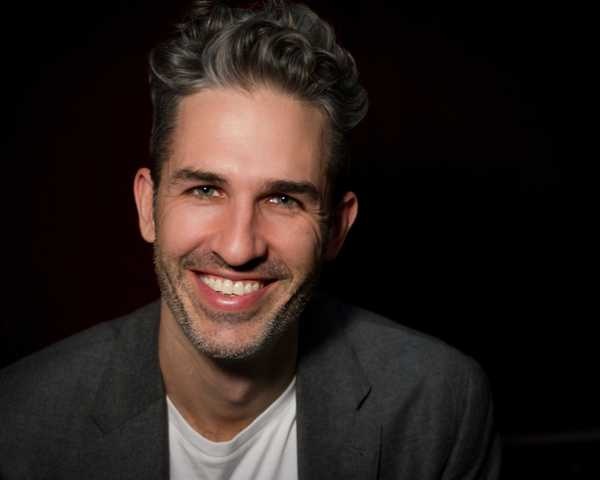
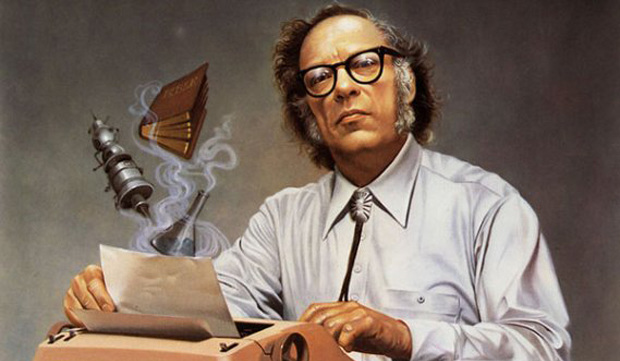
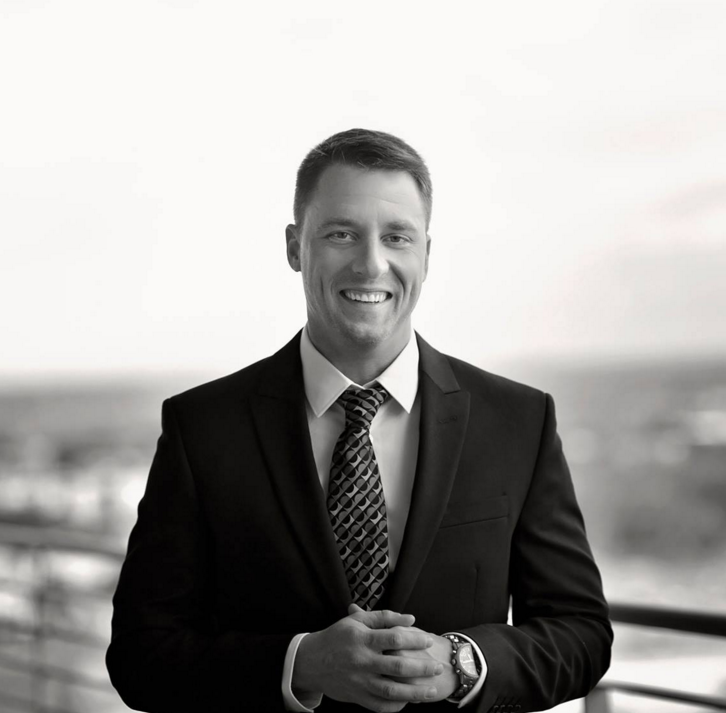
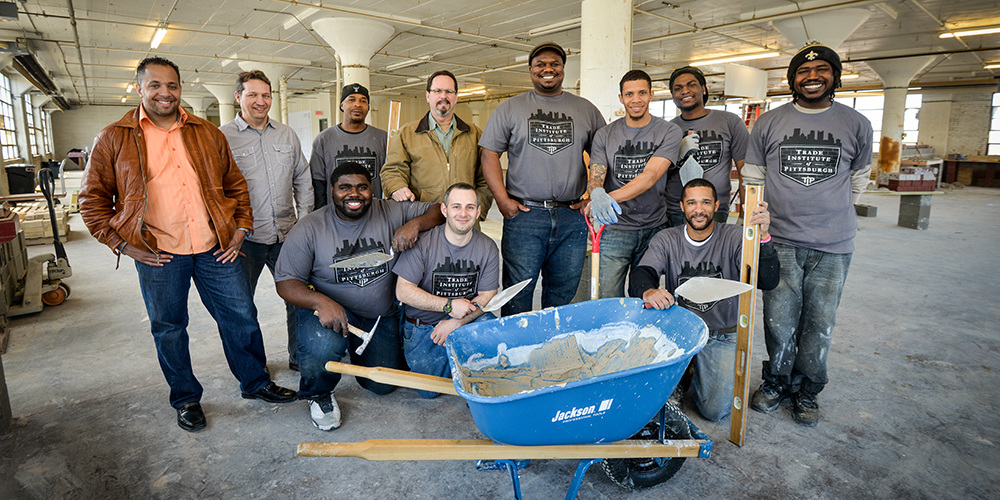
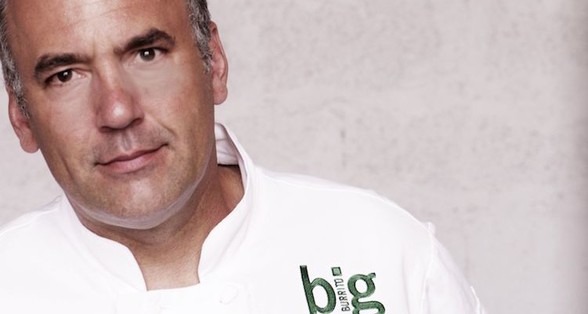
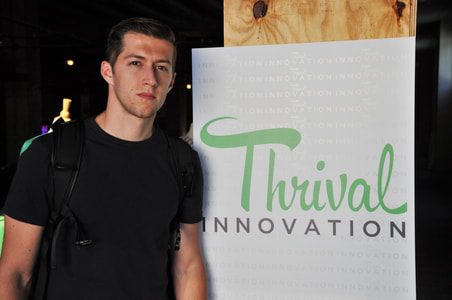


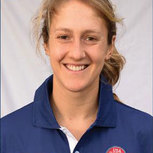


 RSS Feed
RSS Feed